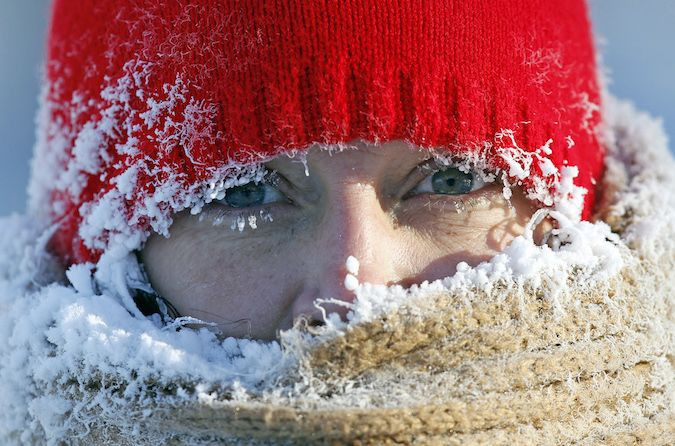Change Of Season Sickness: Why Does The Weather Influence Our Chances Of Catching A Cold?

Fall is upon us on the East Coast, and everyone knows that cooler weather is the advent of cold and flu season. In a recent study, doctors examined the science behind why we get sick when the weather changes. Research found that the two agents that usually cause the common cold — rhinoviruses and cornoaviruses — replicate more easily in weather that’s cool, but not too cold.
"A lot of the viruses that cause the common cold are shown to cause outbreaks more frequently in the early to late spring and early to late fall," Internal Medicine Specialist Kittu Jindal Garg, M.D., told The Weather Channel.
Cold air itself isn’t making you sick, it’s the virus. The structure of influenza allows it to replicate and spread best when air is cold and dry.
"There have been a lot of studies done, but really there's still no evidence to show that it's the cold weather itself that's making us sick," Dr. Garg said.
Seasonal allergies are also prevalent during the changing seasons, particularly in the spring and fall. If you’ve ever suffered from allergies then you know the symptoms can mirror many of the same symptoms that result from colds and flus.
"I see a lot of patients who come in and tell me that they've had a cold all spring; they've been sick for three months," Dr. Garg said. "Really they don't have a cold at all, but more so their allergies are flaring up."
So, what can you do this upcoming winter to avoid the common cold? Wash your hands, most importantly.
"Having a healthy lifestyle is known to reduce your risk of getting colds. If you get a moderate level of exercise, and you have good sleep patterns — you're sleeping well and sleeping enough — and not under too much physical or emotional stress [you're less likely to get sick],” Dr Garg said, adding that the cold virus can live on human skin for at least two hours.
These recommendations are also helpful in treating allergies, though medication may be required. In either case, take care of your body, get sleep, and don't wait to see a doctor if your symptoms don't improve.
Read more:
Cold Weather May Increase Risk Of Hospitalization For Heart Failure And Atrial Fibrillation



























